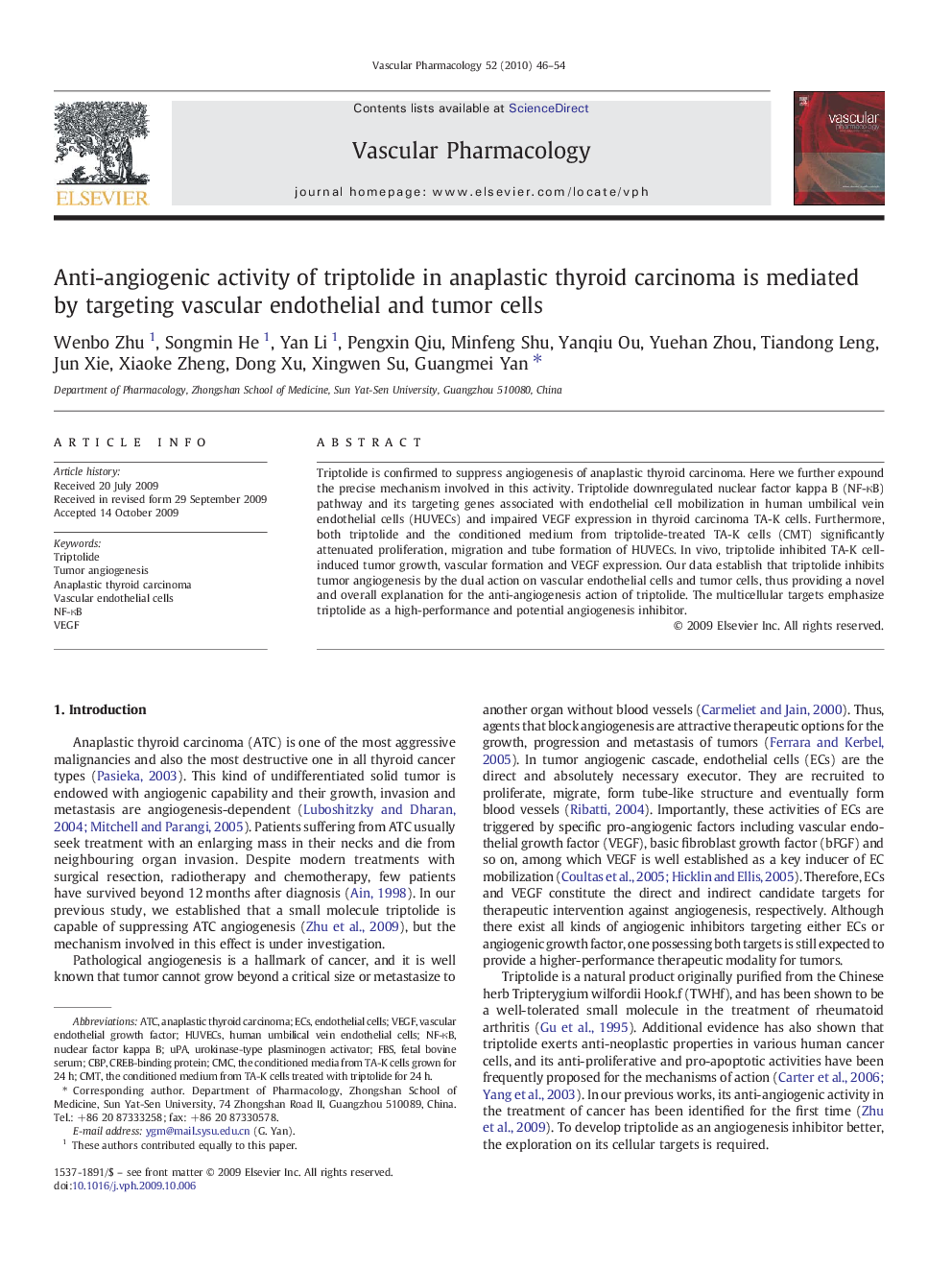| Article ID | Journal | Published Year | Pages | File Type |
|---|---|---|---|---|
| 2574619 | Vascular Pharmacology | 2010 | 9 Pages |
Triptolide is confirmed to suppress angiogenesis of anaplastic thyroid carcinoma. Here we further expound the precise mechanism involved in this activity. Triptolide downregulated nuclear factor kappa B (NF-κB) pathway and its targeting genes associated with endothelial cell mobilization in human umbilical vein endothelial cells (HUVECs) and impaired VEGF expression in thyroid carcinoma TA-K cells. Furthermore, both triptolide and the conditioned medium from triptolide-treated TA-K cells (CMT) significantly attenuated proliferation, migration and tube formation of HUVECs. In vivo, triptolide inhibited TA-K cell-induced tumor growth, vascular formation and VEGF expression. Our data establish that triptolide inhibits tumor angiogenesis by the dual action on vascular endothelial cells and tumor cells, thus providing a novel and overall explanation for the anti-angiogenesis action of triptolide. The multicellular targets emphasize triptolide as a high-performance and potential angiogenesis inhibitor.
Figure optionsDownload full-size imageDownload as PowerPoint slide
